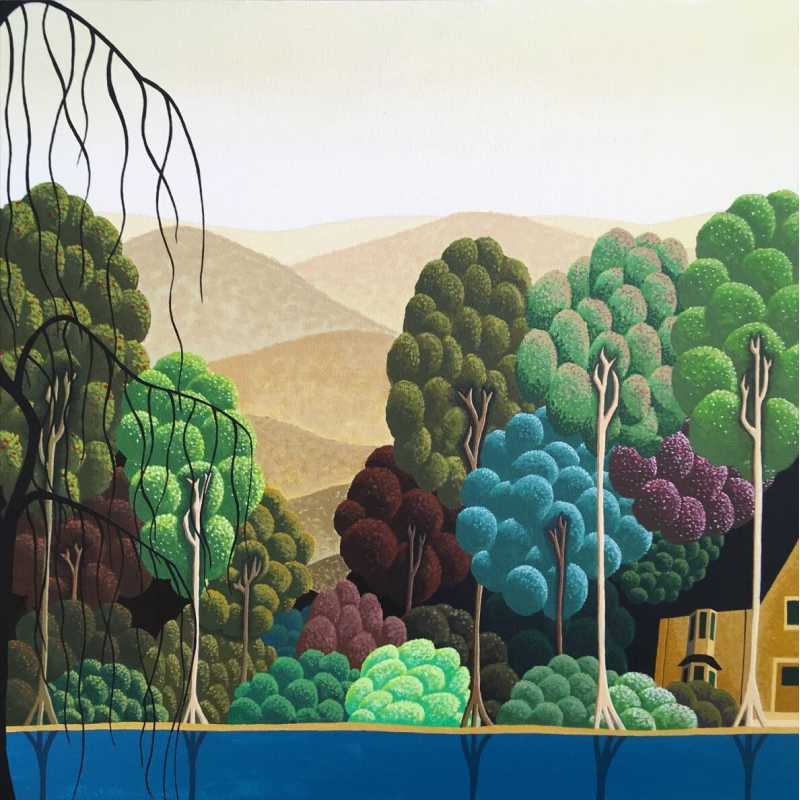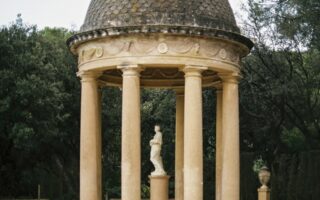
On Alluvium, C Duncan remains in a world of his own.
Released in 2015, Christopher Duncan’s first album Architect was something of an outlier.
Self-written, self-played and self-recorded, it positioned the diffident Glaswegian in the mould of conductor, a role in which he skillfully reprised the work of icons such as Nick Drake, John Grant, Fleet Foxes and even Burt Bacharach.
These affectionate bygones earned it a Mercury Prize nomination and many nice words, but although the Scot draws kindness to him, its subsequent follow-ups The Midnight Sun (2017) and Health (2019) both felt at times like they were seeking to encapsulate a pop-modernism which wasn’t natural.
Alluvium finds him settled in the placid west coast town of Helensburgh, and with the purpose of recapturing the uncomplicated warmth of his debut.
Most of its songs are about changes, either in abstract or person; the all too brief closer Upon The Table sees love as renewal and perpetual, the cradled guitar and aching harmonies a moment that could be a sepia-toned yuletide carol.
Indeed, where matters of the heart are concerned Duncan has, it seems, long thought himself a fascinated storyteller. The eddying Torso refers in part to French poet Leconte de Lisle’s ‘Le Colibri’, which conceptualises a desire so insatiable that in song the lover concerned would sacrifice everything but never be fulfilled.
On the more upright Bell Toll, with its keening piano fills and the welcome return of the whistle, he explores the idea of uncertainty becoming a constant, a state of emotional flux the new status quo.
Another part of the reset is an unashamed loop back to timeless, soft-focused MOR: opener Air begins with the words, ‘We’re at the end’, a conscious drawing of the line behind which is simply a past that cannot be changed.
The Laurel Canyon stylings of Earth are comparably undemanding, whilst its equally cuddlesome successor The Wedding Song even features the singer’s parents with a contribution playing strings.
A classically trained musician like them, a long-standing feature of Duncan’s work has been a willingness to use those structures as a bridge between his then and now.
Here, the piano-cascades of Lullaby echo a chilly ambience, but the delicate scaling is most prominent on the title-track, although its rolling harpsichord is ambushed unexpectedly by a brief, rock-ish guitar solo.
That’s hardly reckless, but whenever and whatever phase his career to-date has been in the output has always been at its most listenable when approached as a kind of treasure hunt, a trail dotted with unassuming and unexpected finds.
Heaven – inspired by a conversation with his late grandmother about her life – is archetypically diaphanous pop of which he shines, but it’s the Carpenters-esque reverie of We Have A Lifetime that deftly pulls all of these worlds together, a tranquil ballad served with much tenderness.
Facing a new beginning after circumstance has changed and opportunities came and went is usually an arduous process, especially in a music world which seems to demand that holding a bonfire of what you made and cherished before is a necessary sacrifice.
Credit then to those who see growth as a process of moulding their work from the best of themselves wherever that may honestly be found; Alluvium finds Christopher Duncan still in a niche of one, no more or less of an outlier than his debut and no more or less worthy of our attention now for it.







